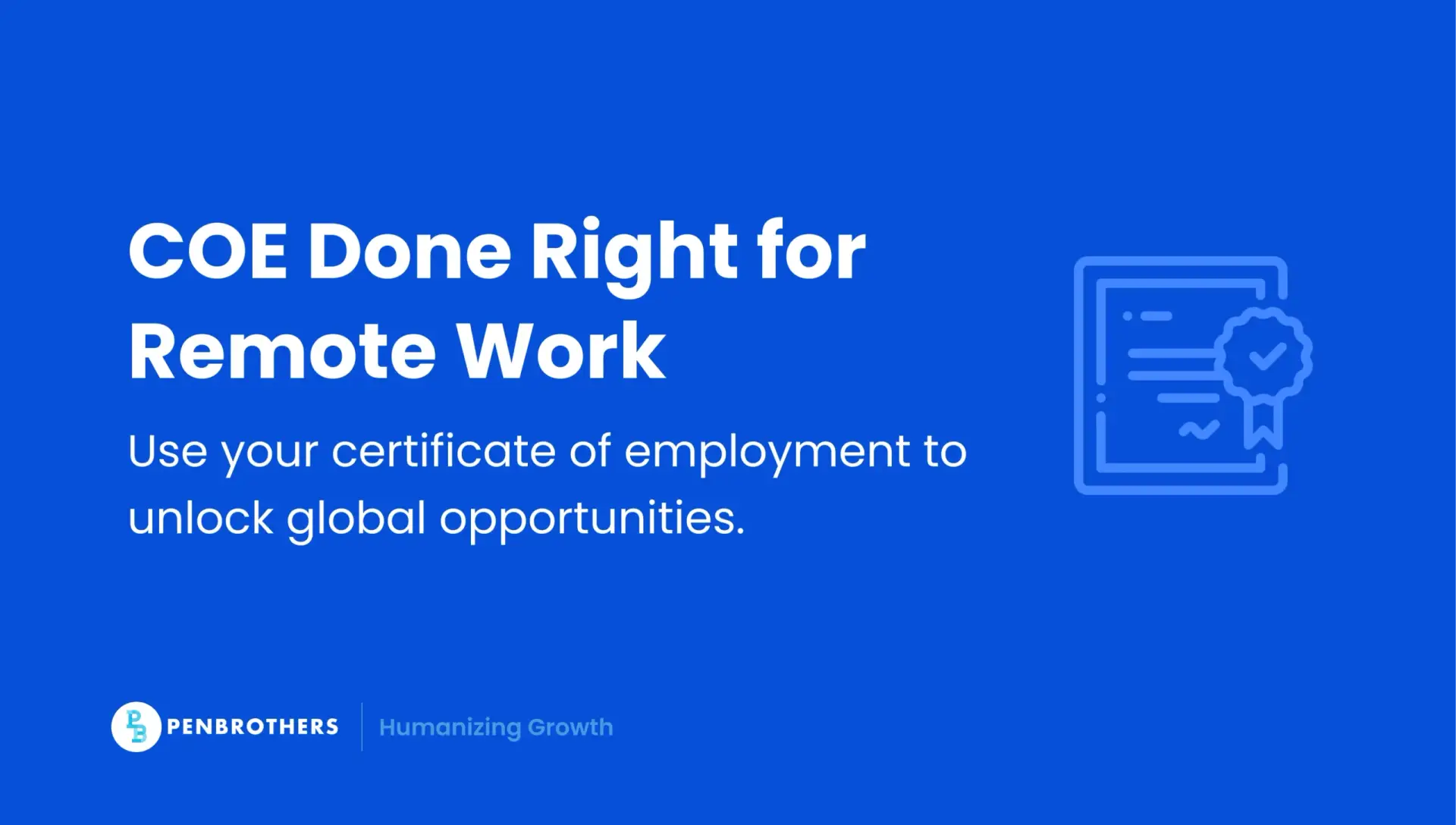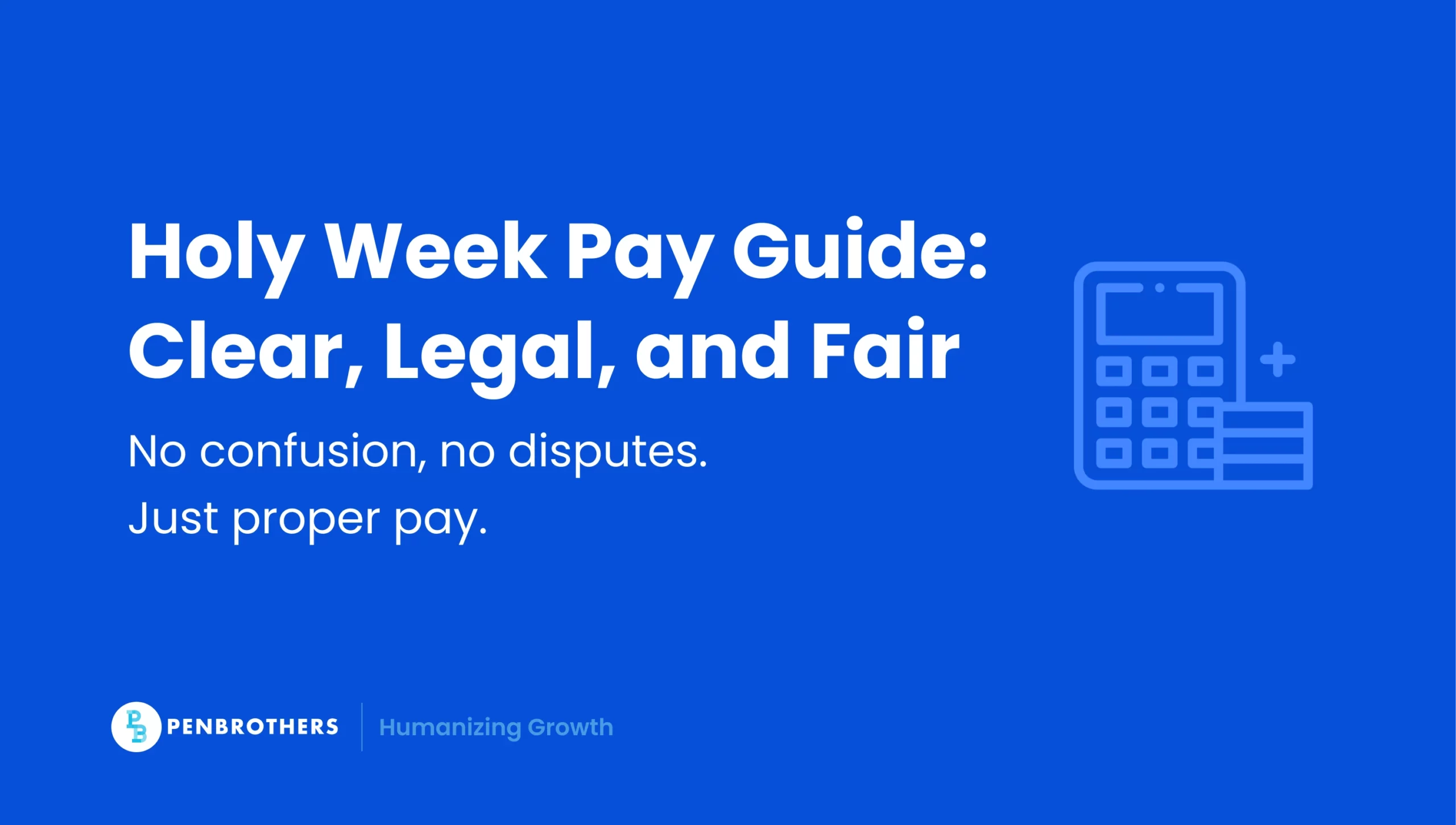What's Inside?
Non-Working Days in the Philippines: How Remote Teams Can Stay Compliant and Connected

Key Takeaways
- Compliance Drives Trust. Applying non-working day rules correctly ensures fair pay and builds confidence across remote teams.
- Know Your Rights & Rules. Understanding regular, special, and special working holidays prevents pay disputes and confusion.
- Remote Teams Need Precision. Clear calendars, proactive communication, and payroll alignment are essential for globally distributed Filipino talent.
When your team works across cities or even continents, holidays can easily slip through the cracks. A day off in Manila could be a regular workday in New York or London. For remote teams, this mismatch creates confusion in payroll, compliance, and employee trust.
In the Philippines, non-working days aren’t just cultural pauses. They’re legal obligations. Whether you’re managing a distributed team or working remotely for a global employer, understanding how these days affect pay, workload, and morale is essential.
Let’s break down how a non-working day works in the Philippines and how remote teams can stay compliant, fair, and connected, no matter where they are.
What Is a Non-Working Day in the Philippines?
A “no work” day is a day officially declared by the Philippine government when employees are not required to work. These days commemorate national, cultural, or religious events.
There are three main types of holidays that directly affect pay and scheduling:
| Type | Common Examples | Pay Rules |
| Regular Holidays | New Year’s Day, Independence Day, Christmas Day | Paid 100% even if not worked; 200% if worked. |
| Special Non-Working Days | Chinese New Year, All Saints’ Day, Ninoy Aquino Day | “No work, no pay,” unless company policy says otherwise; 130% pay if worked. |
| Special Working Days | Declared by presidential proclamation | Regular workday; no extra pay unless agreed. |
Under the Telecommuting Act (RA 11165), these same rules apply to both on-site and remote employees, ensuring that remote work doesn’t diminish access to lawful benefits or holiday pay.
The Hidden Challenge: Applying “No Work” Days to Remote Teams
Here’s where remote work complicates things:
- Different locations, different holidays. A designer in Davao might observe a city holiday while teammates abroad do not.
- Time zone gaps. Philippine holidays can overlap with active business days in other countries.
- Payroll accuracy. Without localized tracking, holiday pay can be missed or miscalculated.
These inconsistencies can create compliance risks and employee dissatisfaction. The key is to apply Philippine labor laws consistently, regardless of where the employee performs their work.
How Smart Employers Handle Compliance in Distributed Teams
Forward-thinking employers automate compliance. Payroll systems are configured to align with official DOLE holiday announcements, ensuring correct pay rates whether the employee is in Metro Manila or working remotely from another province.
When compliance is built into operations and not treated as an afterthought. It prevents disputes, boosts retention, and reinforces trust across distributed teams.
Balancing Global and Local Holidays: Best Practices for Employers
For international companies managing Filipino talent, balancing global and local observances can be tricky. Here’s how to make it work smoothly:
- Maintain dual calendars: one for Philippine holidays and one for your global schedule.
- Offer floating holidays for flexibility across cultures and time zones.
- Encourage cross-cultural awareness: Let team members share local traditions to build empathy.
- Clarify policies in writing: Reflect holiday observances clearly in contracts and HR handbooks.
When done right, these practices turn compliance into connection. This makes distributed work more human and harmonious.
Communicating Non-Working Days to Remote Teams
A clear holiday policy is only effective when it’s well-communicated.
Before every long weekend or public holiday, make sure your HR or operations team sends reminders that include:
- Dates of upcoming holidays
- Applicable pay rules
- Expectations for client communication or response times
Transparent communication prevents payroll disputes, supports planning, and reinforces fairness across teams.
Common Scenarios and How to Handle Them
Here’s how to manage common holiday situations correctly:
Scenario 1: Employee works on a regular holiday
- Pay 200% of the daily rate.
- If the holiday falls on a rest day, add 30%.
Scenario 2: Employee works on a special non-working day
- Pay 130%.
- No work = no pay (unless company policy grants it).
Scenario 3: Employee relocates to another city
- Follow the local holiday schedule of their new location.
Scenario 4: Hybrid or international teams
- Define which country’s holidays apply to each role in the employment contract.
Getting these details right keeps operations running smoothly and keeps teams confident that they’re treated fairly.
For Filipino Remote Employees: Know Your Rights
As a Filipino remote employee, you’re entitled to the same holiday pay benefits as on-site workers. Make sure to check:
- Your payslip for holiday weeks: Rates should reflect DOLE rules.
- Your contract: It should reference Philippine holiday policies.
- Internal announcements: Especially for new or declared holidays.
Understanding your rights helps you identify errors early and ensures fair treatment wherever you work.
For Global Employers: Compliance Is Culture
Respecting local holidays isn’t just about following the law. It’s about respect.
When you acknowledge non-working days in your Filipino team’s calendar, you send a clear message: their culture and time off matter. This not only builds trust but also strengthens retention and engagement across your remote workforce.
Conclusion: Compliance Builds Connection
Non-working days remind us that rest is part of sustainable productivity. For remote and global teams, applying these days fairly isn’t just an HR task. It’s a signal of care, consistency, and cultural respect.
Building compliance into your operations doesn’t just prevent errors. It deepens the connection. Because when people feel respected, they bring their best work forward, wherever they are in the world.
Looking to build a compliant remote team in the Philippines? Partner with an employer of record that ensures full compliance and care.
*This article was crafted with the support of AI technology, refined by a human editor and verified by a human subject matter expert.





